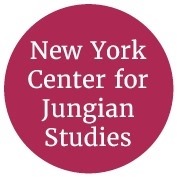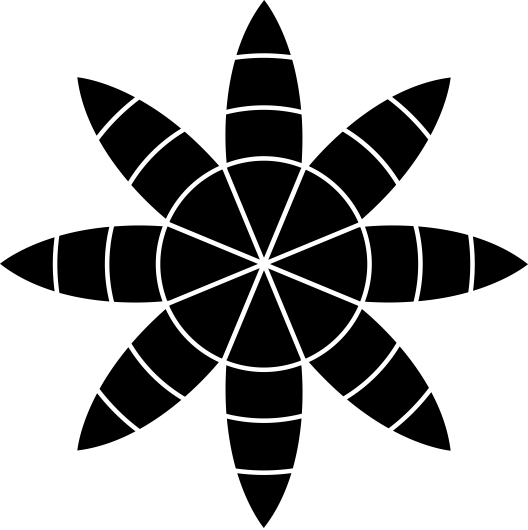
Date
- Sep 22 2025
Time
UTC-4- 6:00 pm - 6:00 pm
Local Time
- Timezone: America/Los_Angeles
- Date: Sep 21 2025
- Time: 4:00 pm - 4:00 pm
Cost
- $395.00
Speakers
- Margaret Klenck
- Richard Tarnas
- Thomas Moore
- Joe Cambray
- Cynthia Anne Hale
- Lori Pye
Location
- Online
Organiser

New York Center for Jungian Studies
Phone
845 256 0191Website
https://jungian.directory/related_organisation/new-york-center-for-jungian-studies/Fear, Anger and Discontent in Challenging Times – Jung Winter Online Weeklong Seminar
These turbulent times have brought a plethora of challenges to our everyday routines and long-term plans. For many, they have upended relationships, family life, careers, our sense of belonging, and more. From climate change wreaking havoc with drought, fire, flood, catastrophic storms, and unendurable heat to rifts in our democracy, the world-wide pandemic, the rise in subversive ideology, a deluge of misinformation, and civil unrest, many of us find ourselves dealing with familiar emotions that we had thought were behind us.
The uncertainty and heartache bring with it feelings of fear of the unknown, of losing our health or our lives, of letting go of what we know and what we have. A natural, powerful, and primitive human emotion, fear can empower or hinder our individuation process. Anger can be a source of creative energy, serving as a catalyst to help us move forward in life and further our individuation process. It can also impair our judgement and behavior, lead to personal derailment and societal fragmentation, and create a toxic and unrelenting downward spiral. Consequently, many of us are feeling discontent, perhaps thwarted in our ambitions, stuck, even lost. We might be overwhelmed, falling further into despair and loss of self. Or we might be moved or inspired by these extreme circumstances, spurring us on to reimagine our future and reinvent ourselves.
Though these are the things life is made of, there are times when the magnitude or the multitude of challenges produce a tectonic shift. Such is this time of profound transformation for the individual, society, and planet. This is nothing less than an intense rite of passage wherein we are being asked to meet this moment with all that we have learned and all that we are capable of.
Sunday, January 9 | 6:00–8:00 p.m.
Keynote Presentation: Waiting for Rubedo: A Pale Society Fosters Greed and Aggression
Jung had a message that was similar to that of Thoreau’s sentiment that the modern person “has no time to be anything but a machine,” and needs to be less tamed by an unnatural lifestyle. The satisfactions of many people today, including the wealthy and powerful, are bloodless and ultimately unsatisfying, and so many are desperate to acquire and horde at the expense of the not so wealthy. We measure our success as a society by the amount of shallow comforts we have and don’t have the taste or vitality to look for deep, soulful happiness. Most people, then, are discontent, in need of vitality, solid pleasures, and the power to be themselves. As medicine for our discontent, Jung recommended the restoration of our animal nature, necessary orgiastic experiences and intimacy with the natural world.
Monday, January 10 | 12:00–1:30 & 2:00–3:30 p.m.
The Spirit of the Times, The Spirit of the Depths
In 1913, Jung found himself in chaos: He had broken with Freud; he was having visions of rivers of blood running through Europe; he was in a deep depression yet a period of creativity. Personally and collectively, things were falling apart—a little like our troubled and troubling world today. Jung discovered ways to come to terms with the unfathomable, the dangerous, the terrifying. We will look to him for guidance as we wonder what the Spirit of the Depths and the Spirit of the Times are asking of us.
Tuesday, January 11 | 12:00–1:30 & 2:00–3:30 p.m.
Reconsidering Individuation in the 21st Century: When Archetypal Patterns Shift
The past several years have been marked by upheavals and accelerating change impacting all of us. The disruptions and uncertainties at societal and global scales point to a shift or transformation in the archetypal patterns emerging in the collective unconscious, as well as manifesting in our individual lives. The figure of the hero, as the basis of ego identity, is declining while appreciation of interconnectedness as what sustains the psyche has become more manifest. How can we best find our way through these times? An archetypal systems approach will be offered from which we can explore a reimagining of Jung’s notion of individuation.
Wednesday, January 12 | 12:00–1:30 & 2:00–3:30 p.m.
The Ecology and Psychology of Composting Our Feelings of Despair
The climate of the times may be heavy with fear, anger, and discontent, yet underpinning these states we find an environment of feeling despair. Yet, it is important to understand that this environment of despair is not a static state; it is a process of transformation, a turning over or a change in direction. In ecological composting processes, matter is always being turned over, such that the environment completely changes. In psychological composting, one can use ecological processes to turn feelings of despair over, such that something in our psyche completely changes. In both ecology and psychology, composting is a decay and renewal process of transformation. In this presentation, participants will be introduced to the process of composting, the ecological process of energy as it relates to composting, and will explore the ecology of psychological decomposition-recomposition processes through writing and small group sharing. In this presentation, we will explore the rich ecological metaphors and processes of composting and its relationship to the healing process of psychotherapy.
Thursday, January 13 | 12:00–1:30 & 2:00–3:30 p.m.
Listening from a Depth Perspective: Illuminating Different Realities
Opposing world views can collide during turbulent times, with seemingly steady relationships becoming distant or even fractured. We wonder how others can see things so differently. Listening multi-dimensionally, that is, from a depth perspective, illuminates vastly different realities. Ultimately, this kind of listening can create openings with greater potential for emotional well-being and even for change. Cynthia will discuss themes of these times drawn from clinical practice, dreams, and daily life. She will offer ways to listen sensitively to individual, collective, and archetypal levels of consciousness with the hope of strengthening our capacity to hold ambiguity.
Friday, January 14 | 12:00–1:30 & 2:00–3:30 p.m.
Is Humankind Undergoing a Collective Initiatory Crisis? The Moral Drama of Our Time
We seem to be living at the end of an era. The past and the future are converging in our time with extraordinary force. So much is at stake. We are facing a threshold of fundamental collective transformation that bears a striking resemblance to what takes place on the individual level in initiatory rites of passage, in near-death experiences, in spiritual crises, and in certain critical stages of the individuation process. Can we find a place of equilibrium, an eye in the storm, from which we can engage this time of intense polarization and radical change? What is the role of hope in such a time? And finally, what is the role of “heroic” communities such as Jungian centers and associations that carry principles and a vision of the good sharply different from the mainstream modern world view? For each of us to navigate our own way in life during this dramatic age of human history and Earth evolution requires sources of insight that go beyond simple strategies for just getting ahead or coping with life. This presentation will offer glimpses of a larger context and frame of reference to help us access those deeper moral and spiritual sources through which we can understand our time, re-imagine our lives, and find new resilience.
-
Brief Overview
Discount available for registering before 28 December 2021.
-
00
days
-
00
hours
-
00
minutes
-
00
seconds
Related Events

